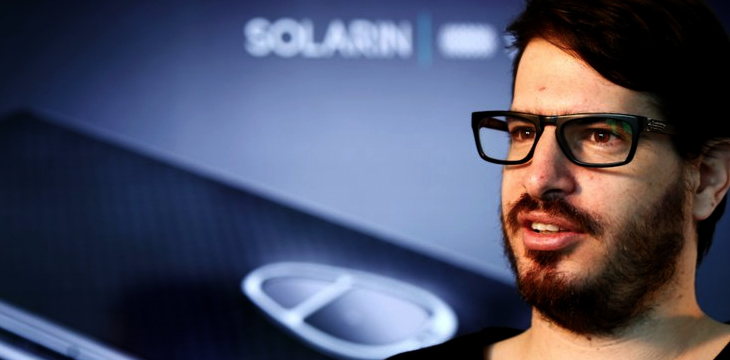|
Getting your Trinity Audio player ready...
|
Moshe Hogeg might not be a thief, but a lot of people would say otherwise. The Israeli cryptocurrency entrepreneur is defending himself once again against a lawsuit from a scorned investor.
The Times of Israel reports Chinese investor Zhewen Hu is alleging Hogeg embezzled $4.6 million worth of Ether (ETH). Hu invested that sum to Hogeg’s company STX Technologies Limited, with the expectation that their new prediction market platform would increase the market value of the Stox token, thus delivering a return to Hu. At least, that’s what was promised by the Stox whitepaper.
In his defense, Hogeg’s lawyers are arguing that a whitepaper, and information listed on the Stox website, is not legally binding. They wrote, “A whitepaper does not constitute a prospectus or offering document.” They went on to explain that Hogeg was not offering an initial coin offering (ICO), which would carry some legal responsibility for its promises.
Hu’s allegation continues on to argue that after Hogeg offered an ICO in 2017, he was able to raise $34 million, which the whitepaper claimed was enough to get the prediction market platform running. Instead, Hogeg allegedly spent the funds raised on other ICOs for his own benefit, and sold his own holdings of Stox to get out before his investors were wise to his scheme.
This is not Hogeg’s first defense in a lawsuit. In November, 17 shareholders of AnyOption, a company which is now defunct, petitioned the court claiming that Hogeg had stolen assets from that company, ruining its operations and their share values.
Based on reports, Hogeg has had a lot of extra money to spend, making these allegations of embezzlement even more alarming. Hogeg purchased $19 million worth of land in 2018, a soccer team for $7.2 million, and donated $1.9 million to Tel Aviv University in October.
Hogeg’s defense that whitepapers are not legally binding is less than impressive. A whitepaper might not be something that can be cited in a court of law, we’ll find out soon enough, but it is a promise to the world of what you want to deliver.
Satoshi Nakamoto’s whitepaper promised a digital currency that would replace fiat money for the world, and called it Bitcoin. Usurpers tried to hijack Bitcoin and divert it for their own means, but Bitcoin was reborn in November 2018 as Bitcoin SV (BSV), the only cryptocurrency to follow that original whitepaper, and the only digital currency that is stable, safe, and scalable. People like BSV because it stays true to the original promise; a lesson Hogeg might learn from.
https://youtu.be/gBb9FSxfyVs
Recommended for you
British lawmakers of the parliamentary national security committee have called for a temporary ban on political parties receiving donations in
Circle (NASDAQ: CRCL) soared in 2025 thanks to U.S. ‘regulatory clarity,’ but can this momentum survive a ban on crypto

 02-26-2026
02-26-2026 




